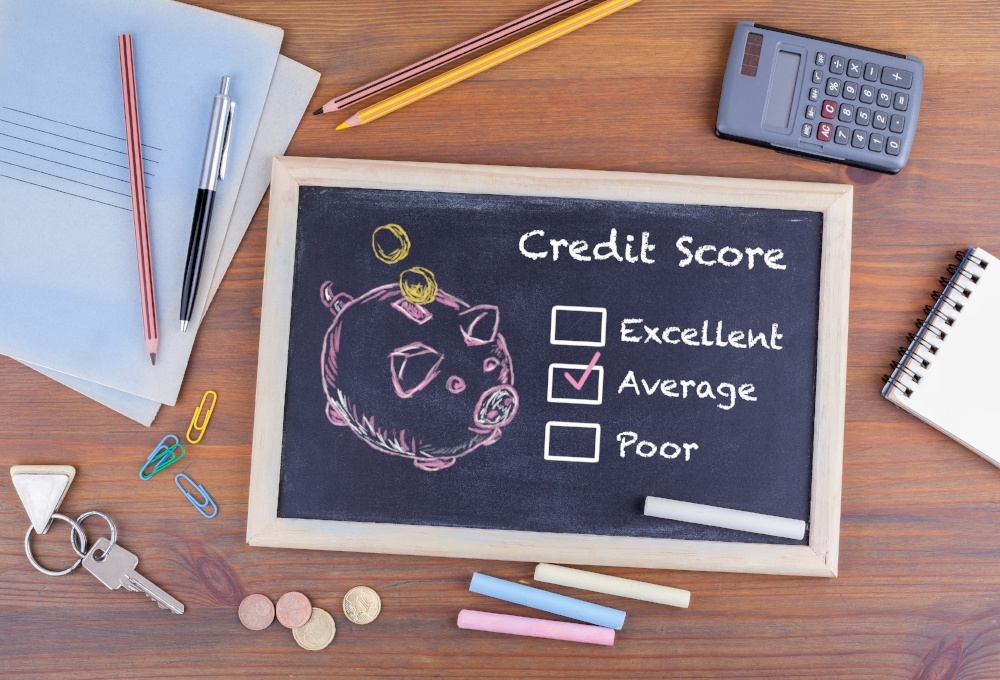Understanding Credit Scores
If you’ve used credit in the past, you probably have a credit score. What is a credit score? It's a number that reflects how you’ve managed your...
6 min read
 Jenna Taubel
:
May 7, 2024 5:30:00 AM
Jenna Taubel
:
May 7, 2024 5:30:00 AM

In the world of personal finance, few things carry as much weight as your credit score. It's a three-digit number that can have a significant impact on your financial life, determining whether you qualify for loans, credit cards, apartments, and even job opportunities. Despite its importance, credit scores remain a source of confusion for many people. This confusion makes it challenging to navigate through the complexity and misinformation surrounding credit scores. In this article, we'll reveal the truth about what credit scores are, why they matter, debunk common myths, and provide tips on how to manage and improve your score to impress potential lenders.
There is a plethora of misinformation circulating about credit scores that can greatly influence how you manage your debt and potentially harm your score. By dispelling common myths surrounding credit scores, you can empower yourself to make informed financial decisions and foster healthier money habits. Let's delve into the truths behind these misconceptions to gain a clearer understanding of credit scores.
A credit score is a numerical representation of your ability to manage your debts, essentially reflecting how likely you are to repay borrowed money. Your credit score is ultimately used to assess your financial reliability.
The most commonly used credit scoring model is the FICO score, however there are other models such as Vantage Score that are also used. Credit scores typically range from 300 to 850, with higher scores being preferred.
Credit scores are important factors to understand, your credit score can have large impacts on various aspects of your life, including:
The complexity of credit scoring models and the financial industry as a whole can contribute to confusion and misinformation. Believing false information about credit scores can lead you to make decisions that harm your financial well-being.
For instance, someone who believes that checking their score lowers it may avoid monitoring their credit altogether, potentially missing errors or fraudulent activity that could damage their credit. Similarly, individuals who wrongly believe that closing old accounts improves their score may unknowingly lower their score by reducing their credit history length.
It's important to remember that credit scores are based on credit report information, so a score can often change when the information in the report changes, such as paying down card balances or making other credit report changes that can impact credit risk.

This myth is widespread, but false. Checking your own score, whether through a free monitoring service or directly from a credit bureau, is considered a soft inquiry and does not impact your score.
In fact, regularly monitoring your score is a responsible financial habit that allows you to stay informed about your financial standing and detect any errors or fraudulent activity in your credit report information. This is especially important in protecting yourself from identity theft, as sudden drops in your credit score could be a sign of fraudulent activity.
This myth likely stems from the fact that applying for numerous loans within a brief timeframe can trigger hard inquiries on your credit report. Lenders may view this rapid credit application as a red flag for potential financial instability.
Many people believe that closing old or unused credit accounts will boost their score, but this is not necessarily the case. Closing accounts can harm your score, especially if they have a long history of on-time payments.
Closing your older credit accounts can shorten your credit history, which accounts for 15% of your score. Additionally, closing accounts could also increase your credit utilization ratio, which is the amount of credit you're using compared to your total available credit, potentially lowering your score.
Contrary to popular belief, you actually have multiple credit scores, not just one. This is because there are several credit scoring models used by different lenders and credit bureaus.
The most commonly used scoring model is the FICO score, but there are also different scoring models, like VantageScore. Each model may use slightly different algorithms and criteria to calculate your score, resulting in variations between them. You might look at your score in a monitoring tool like Credit Karma, but when you apply for a loan your score could be 50 points different because they use different scoring models.
While having a high income can certainly help you manage your finances more effectively, it does not directly determine your credit score. Your credit score is based on factors such as your payment history, credit utilization, length of credit history, types of credit accounts, and new credit inquiries.
Therefore, even someone with a high income could have a low credit score if they mismanage their credit accounts or have a limited credit history. It's important to understand that the length of your credit history also plays a significant role in determining your credit score, and it takes time to build a strong credit history.
This myth is particularly damaging because it can lead people to accrue unnecessary interest charges. In reality, carrying a balance on your credit card does not improve your credit score or help with good debt management.
On the contrary, it can actually hurt your score by increasing your credit utilization ratio and potentially leading to missed payments if you're unable to pay off the balance in full. It's generally recommended to pay your card balances in full each month to maintain a healthy credit profile and avoid accumulating credit card debt.
By understanding the truth behind common credit score myths and taking proactive steps to manage their credit responsibly, you can better protect your financial well-being and make informed decisions about how to use credit to your advantage.
Different types of debt impact credit scores differently. Balances carried on credit cards and personal loans can hurt credit scores more than student loans or mortgage debts. High credit utilization rates on credit cards can significantly lower scores, while installment loans, like auto loans, may have less impact if consistently paid on time.
Regularly monitoring your credit score can help you stay informed about your financial health and detect any errors or suspicious activity. You can access your credit report for free once a year from each of the three major credit bureaus – Equifax, Experian, and TransUnion – through AnnualCreditReport.com, , as mandated by federal law. Additionally, many credit card companies and financial institutions offer free credit score monitoring tools as a benefit for account holders
Building and maintaining a good credit score requires responsible money management. If you're looking to improve your credit score follow these top tips:
Pay your bills on time, every time. Late payments can significantly impact your credit score, so set up reminders or automatic payments to ensure you never miss a due date.
Aim to keep your credit card balances low relative to your credit limits. High credit utilization can indicate financial strain and may lower your credit score. Try to keep your utilization below 30% to maintain a healthy credit score.
Having a mix of different types of credit accounts, also known as "credit mix," can help demonstrate responsible credit management. This includes managing both installment accounts, such as car loans or mortgages, and revolving accounts, such as credit cards and lines of credit. However, it is important to only open new accounts when necessary and avoid applying for multiple credit cards or loans within a short period. As mentioned earlier, applying for multiple loans or credit cards in a rapid succession can temporarily lower your score.
Stay informed about your credit score and credit report by monitoring them regularly. Many financial institutions offer free credit score monitoring services, or you can use reputable third-party websites, like Credit Karma or Nerd Wallet. Check your credit report for errors or fraudulent activity and dispute any inaccuracies promptly, you get a free copy of your credit report from each reporting agency each year.
Pay down existing debt and avoid taking on more debt than you can comfortably afford to repay. Maintaining a low debt-to-income ratio demonstrates financial responsibility and can positively impact your credit score. Less debt to manage is also less stressful!
If you're new to credit or have a limited credit history, consider options like secured credit cards or credit-builder loans to establish positive credit history. These tools can help you demonstrate responsible credit behavior and gradually build your credit score over time.
By adopting these strategies and committing to responsible credit behavior, you can improve and maintain a healthy credit score. Remember that building good credit takes time and patience, but the long-term financial benefits are well worth the effort.
If you have a lower score, don’t be afraid to reach out to professionals to get help rebuilding your credit through credit card accounts and other credit-building tools, such as increasing your credit line and maintaining a low credit utilization rate.
Understanding the ins and outs of credit scores is essential for maintaining healthy financial habits. By knowing the truth about credit scores you can take control of your financial future and unlock greater opportunities for yourself.
Remember, a higher credit score is not only a reflection of your financial responsibility but also a valuable factor in achieving your financial goals, as it can help you receive more favorable terms and interest rates from lenders.
If you need help building a good credit score, there are resources available to guide you in improving your credit and reaching your financial goals. If you are looking for professional guidance in building and improving your credit score, contact the experts at First Alliance Credit Union.

If you’ve used credit in the past, you probably have a credit score. What is a credit score? It's a number that reflects how you’ve managed your...

You hear about apps and websites offering free credit scores all the time these days, which is great! These educational credit scores allow regular...

There is a lot of talk about credit scores lately. You see ads online and on television about knowing, tracking, and improving your score constantly....